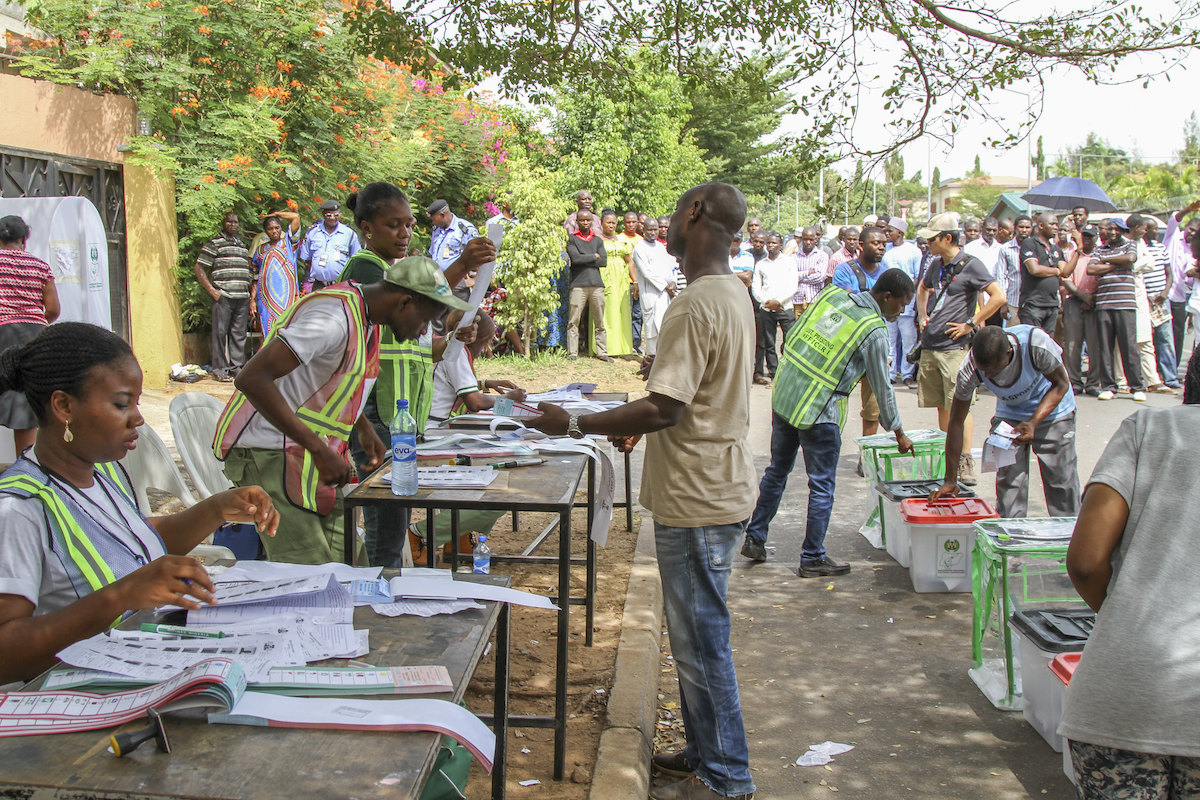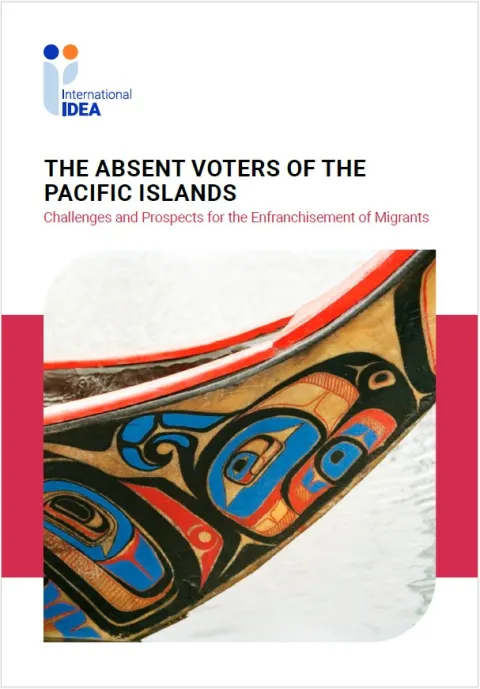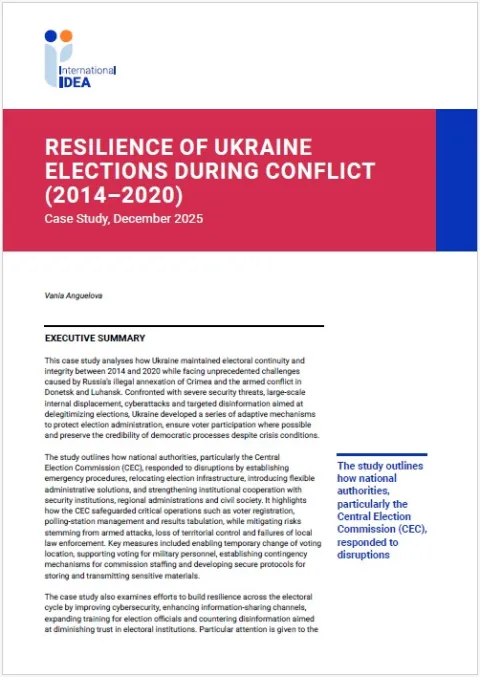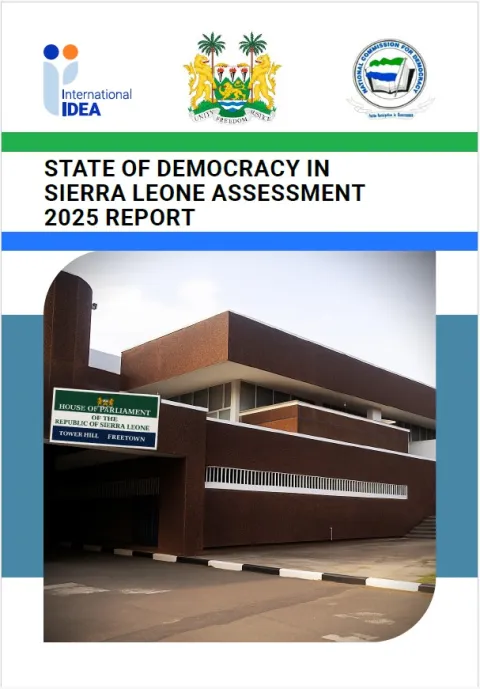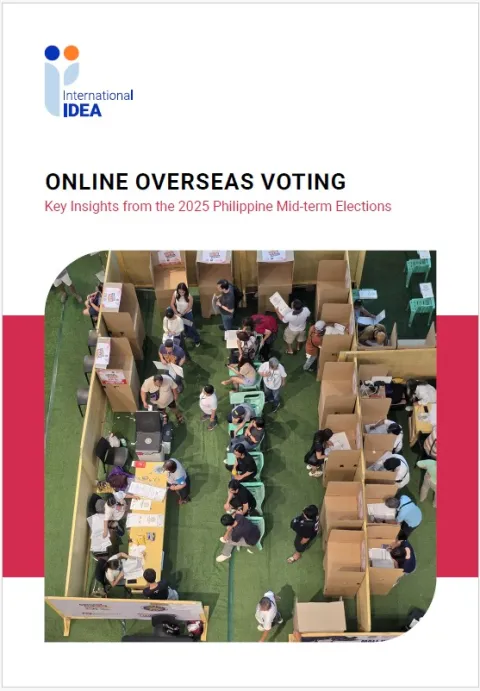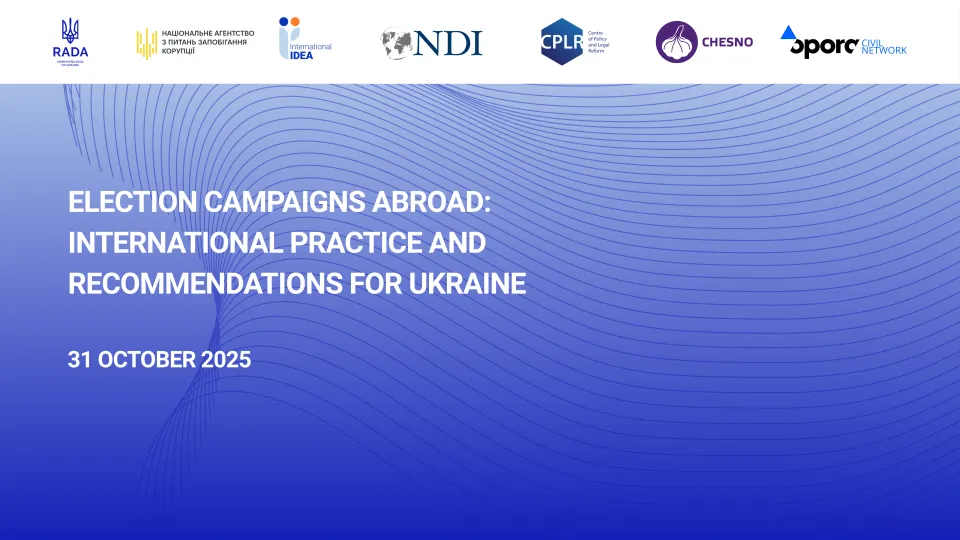Electoral Management during Transition: Challenges and Opportunities
Elections are milestones in the transition from an authoritarian to a democratic regime.
The administration of elections during a transition from an authoritarian to a democratic regime is fraught with challenges. At the same time, the transition offers decision-makers and election administrators opportunities to strengthen electoral management bodies as independent, impartial, credible and professional institutions.
The electoral management body (EMB) that supervises, administers and manages free and fair elections fosters trust in the electoral process and improves the prospects of democratic consolidation.
This Policy Paper outlines the questions to which consideration should be given in supporting EMBs during transition to enable them perform their role. Recognizing the importance of policy choices to be made during democratic transition, it also suggests recommendations to support policymakers and practitioners in this area.
Details
Related databases & tools
Contents
Key Recommendations
Executive Summary
Introduction
1. Essential Considerations
EMB models and independence
Legal framework
Mandate and functions
Membership and staffing
Trust and confidence
Other institutions
2. Case Studies
Indonesia
Ghana
Chile
Annex. Statistical Indicators
References and Further Reading
Acronyms and Abbreviations
Acknowledgements
Give us feedback
Do you have a question or feedback about this publication? Leave us your feedback, and we’ll get back to you
Send feedbackElectoral Management during Transition: Challenges and Opportunities
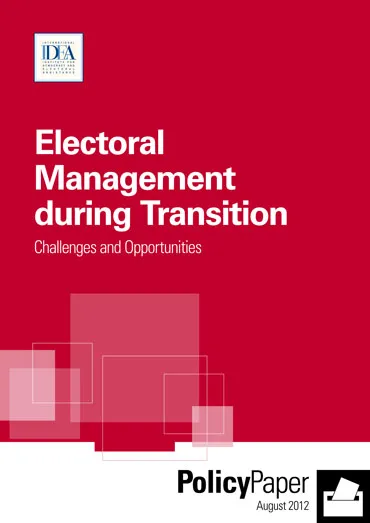
| Total views | 9259 |
|---|---|
| Downloads | 45 |
| Rating |
Related databases & tools
Give us feedback
Do you have a question or feedback about this publication? Leave us your feedback, and we’ll get back to you
Send feedback